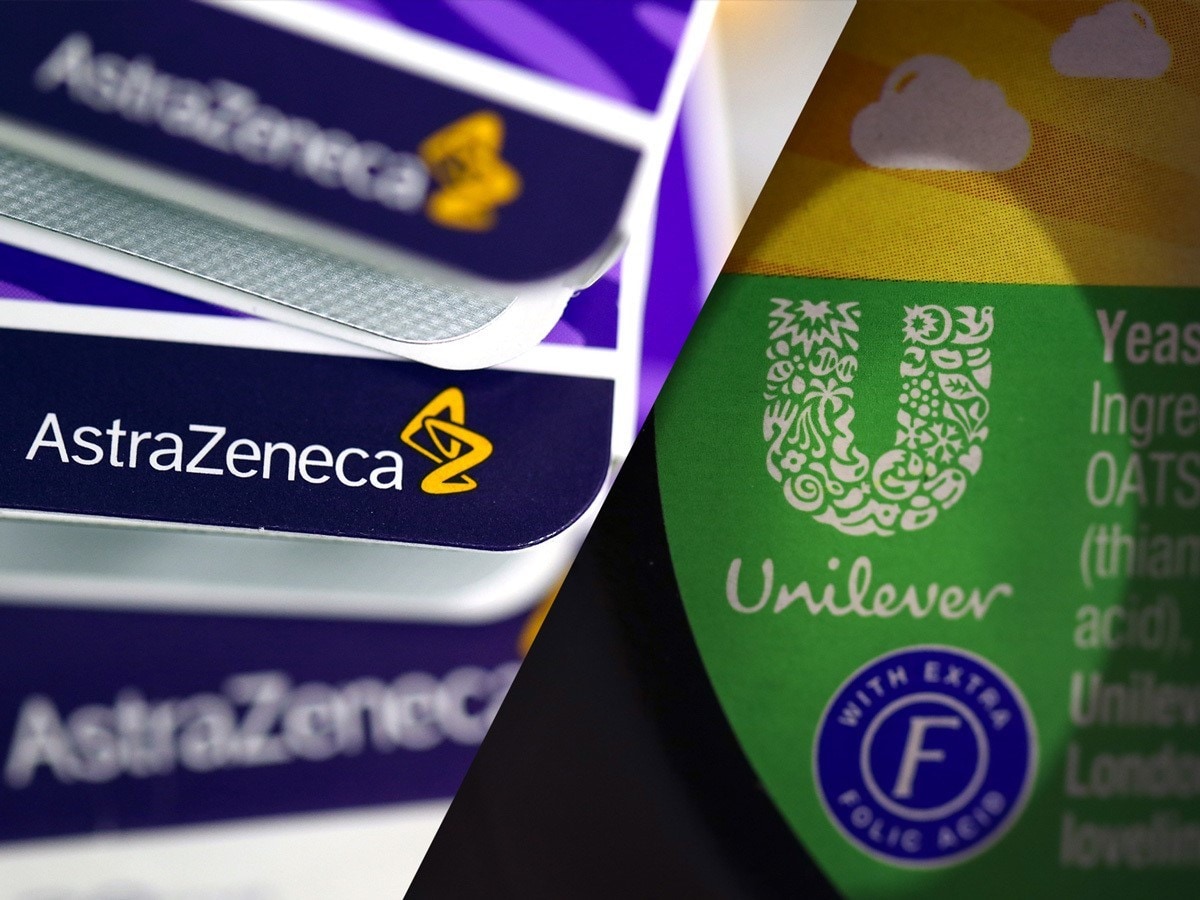The share price performances of AstraZeneca [AZN], Unilever [ULVR] and Siemens [SIE] stood out in the first half of 2020.
Despite the market downturn in March, AstraZeneca’s share price ended the first quarter up 9.4% and continued to climb a further 16.6% in the next quarter, wrapping up the first half with an overall gain of 12.9%.
Although Unilever’s share price ended the first quarter in the red, it recovered drastically in the second and ended the first half up 1.7%.
Compared to the Stoxx Europe 600 Index’s 13.4% fall in the same period, both stocks outperformed the broader market, raising each company’s profile as a resilient bet.
Rising coronavirus cases across the continent threaten to return several European countries to lockdown, and this growing uncertainty has left investors considering whether to rebalance portfolios. However, with some stocks showing resilience, which are worth their attention?
Stocking up on consumer staples
One way shoppers responded to the coronavirus crisis as lockdowns were announced was to panic buy and stockpile essentials. For Orkla [ORK], the rush to hoard saw a sales boom in the first quarter, according to the group’s CEO.
The Norwegian food manufacturer saw operating profit rise for a number of its segments. Its Home & Personal Care segment jumped 15.5% during the quarter while its Foods business, grew 18.7%.
18.7%
Growth of Orkla's Food business during Q1
As of 24 September’s close, Orkla’s share price is up 6.5% year-to-date and is up 22.9% since its 52 week-low of €75, which it dropped to on 12 March.
Conversely, Unilever’s [ULV] share price and many of its brands had more of a mixed time during the early months of the year. Alan Jope, CEO of Unilever, warned back in April that the reduction in out-of-home food consumption, especially its Ben & Jerry’s ice cream, had the potential to have a negative commercial impact.
Nevertheless, the London-based firm has been buoyed by a boost in demand for cleaning products, including its Dove soap brand. This trend will likely continue at least until a vaccine has been found.
Healthy bets
Unilever’s share price has been supported by its diverse portfolio of products. Since the end of June, the stock has climbed 9.4% as of 24 September.
AstraZeneca, on the other hand, is riding high on the hopes of a vaccine. AstraZeneca’s share price rose 1.84% between the end of June and 25 September’s close.
9.4%
Unilever's share price rise since end of June
Though pharmaceutical stocks are defensive — even more so during a health crisis — they can oscillate, given the trial-and-error nature of developing vaccines. Any positive news regarding a COVID-19 vaccine candidate should give investors confidence in AstraZeneca’s share price and result in a positive remainder of the company’s fiscal year.
The pandemic crisis was broadly felt across the manufacturing and engineering sectors. Despite this, German conglomerate Siemens has proven to be largely resilient, with minimal disruption to its operations.
Part of its success in navigating COVID-19 has been attributed to the efforts it has made to slim down its business. In 2017, it spun out medical device firm Siemens Healthineers [SHL].
Revenue for its health business was down 6.9% year-over-year at €3.3bn in the third quarter and net profit was €271m, a slide of 23% from the €353m profit posted in Q3 2019.
€3.3billion
Siemens' health business Q3 revenue - a 6.9% YoY drop
As of 25 September, Siemens Healthineers’ share price is down 12.77% year-to-date. It has, however, soared 19.68% from its lowest close this year of €31, which it hit on 16 March.
Grocery stocks prove second wave proof
Other companies may be well-positioned to weather the storm of a potential second wave of the coronavirus. In an effort to see which, Barron’s recently analysed the Stoxx Europe 600 Index to identify 22 such companies that have good growth prospects.
The main criteria for inclusion was that a stock dropped no more than 15% between 19 February and 23 March. The stock also had to be in the green since then and the company shouldn’t be trading at more than 25 times its forward earnings estimates.
What’s clear from the list is that, while tech stocks have demonstrated their importance to the economy during the pandemic, the stocks most likely to perform better in the event of a second wave are those that offer products or services that will be in demand.
Belgian supermarket chain the Colruyt Group [COLR] and UK supermarket stalwart Morrisons [MRW] fit the criteria. Colruyt’s share price is up 19.68% year-to-date (through 25 September’s close) and 36.7% since its March market sell-off low. Morrisons’ share price, meanwhile, is down 14.45% and up 5.45%, respectively.
19.68%
Colruyt's YTD share price rise
Both stocks quickly bounced back from the market sell-off within a couple of days. What’s held Colruyt and Morrisons in good stead is that trading levels have been high during the pandemic. Both companies have also increased capacity of their home delivery service to meet demand.
Morrisons announced Deliveroo as an on-demand delivery partner in April, while Colruyt acquired data analytics firm Daltix in June in a move that will help the chain get a better insight into consumer behaviour.
The resilience and innovation Colruyt and Morrisons have displayed should mean that the headwinds of a second wave and any further lockdowns aren’t as strong as they were in the first half of the year.
Continue reading for FREE
- Includes free newsletter updates, unsubscribe anytime. Privacy policy





